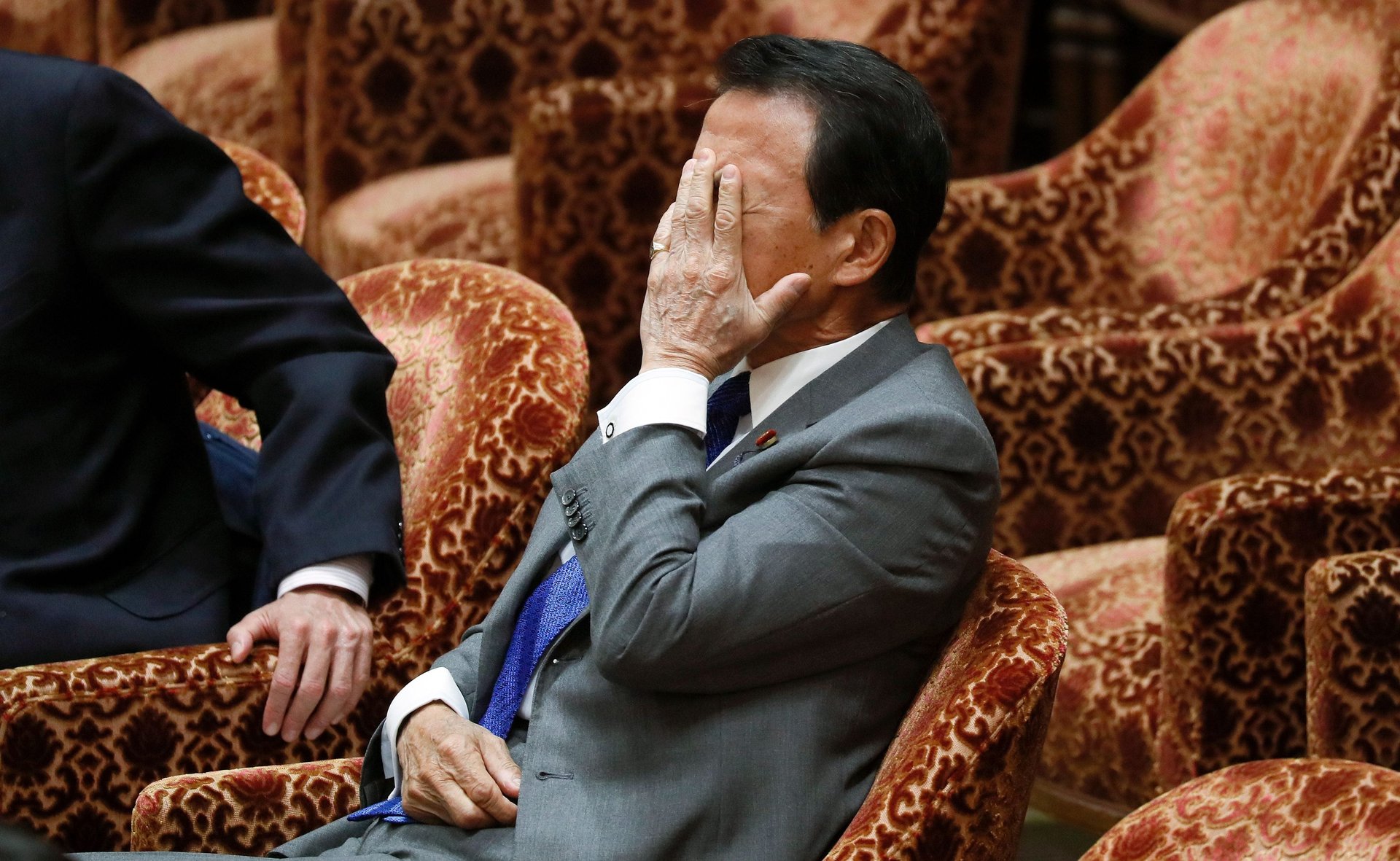The sexist comments that show Japanese politicians are stuck in the dark ages
Last month, the #MeToo movement finally got underway in Japan, as allegations of sexual misconduct against a top finance ministry official prompted more and more women to speak out about their experiences of harassment.


Last month, the #MeToo movement finally got underway in Japan, as allegations of sexual misconduct against a top finance ministry official prompted more and more women to speak out about their experiences of harassment.
Also speaking out—a wave of male politicians with sexist views.
Members of the ruling Liberal Democratic Party (LDP) were quick to rally to the defense of the finance ministry official in question, Junichi Fukuda, since reports of his alleged sexual harassment against a female TV reporter were published by a magazine in April. Fukuda, who denied the allegations, later stepped down from his position, and the government cut his retirement allowance as punishment.
Others, faced with a growing wave of demands from women and society at large to tackle the structural issues that continue to impede women in Japanese society, have responded with outdated and tone-deaf remarks on gender roles—little surprise in a country where a female lawmaker can be kicked out of the legislature for bringing her baby.
Here’s a round-up of these recent remarks.
Victim blaming
Japan’s 77-year-old finance minister Taro Aso said in response to allegations against Fukuda that there’s no such thing as a criminal sexual harassment charge, and said that the ministry punished the official because he did not provide enough evidence to refute the allegations. Weeks later, Aso—no stranger to putting his foot in his mouth—offered an apology to the female reporter who was allegedly harassed by Fukuda, and said he would need to re-think how he expresses himself if there was any misunderstanding over his remarks. He also retracted a statement suggesting that Fukuda was “entrapped.”
Other politicians echoed Aso’s sentiments on sexual harassment. Former education minister Hakubun Shimomura suggested that the actions of the reporter who blew the whistle on Fukuda’s alleged misconduct with a secret recording of him could be labeled a “crime in a sense,” according to a leaked recording of the minister’s own remarks. He incorrectly implied she had profited by selling a secret recording. He also suggested that Fukuda was set up by the reporter. He later apologized.
Shortly after Fukuda’s scandal broke, lawmaker Tadashi Nagao tweeted a photo of opposition lawmakers holding up placards in support of #MeToo, and said: ”Sexual harassment is something that must not happen. At least to me, these people are far from sexual harassment. I declare that I will never sexually harass any of them!” The tweet was later deleted, and Nagao apologized and said he accepted criticism that his remarks could be constituted as sexual harassment.
A woman’s place
Kanji Kato, a lawmaker in the LDP, said this month at a party meeting in Nagasaki that Japanese couples should have three or more children. The 72-year-old later retracted the comments after drawing criticism from even within his own party, but later doubled down on those remarks, citing widespread support for his opinion.
On Sunday (May 27), another senior LDP member, Koichi Hagiuda, said that taking care of children was a mother’s responsibility and that children would be “unhappy” if the job was left to fathers. “If children up to three years old were asked, ‘which do you like better, your mother or father?’ infants would definitely choose their mothers,” he was quoted by Japanese media as saying at a meeting in Miyazaki.